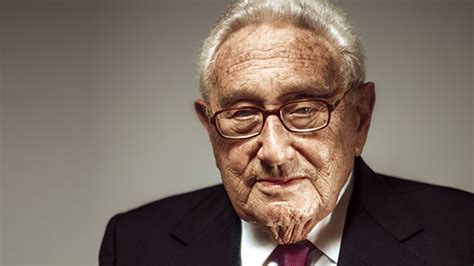Criticism of Henry Kissinger's Human Rights Record.
Henry Kissinger, the former United States Secretary of State and National Security Advisor, is a figure both revered and reviled in diplomatic circles. While celebrated for his realpolitik approach to international relations, Kissinger has faced significant criticism for his role in shaping foreign policy, particularly concerning human rights. This essay explores the various criticisms leveled against Kissinger regarding his human rights record.
1. Realpolitik vs. Human Rights:
Kissinger's approach to foreign policy was deeply rooted in realpolitik, a pragmatic perspective that prioritizes national interests over moral or ethical considerations. Critics argue that this approach led to a disregard for human rights violations committed by regimes deemed strategically important to the United States. Kissinger's support for authoritarian regimes in Chile, Argentina, and Indonesia, among others, is often cited as evidence of this prioritization of geopolitics over human rights.
2. Role in Chilean Coup:
One of the most controversial episodes in Kissinger's career was his involvement in the 1973 coup d'état in Chile, which ousted the democratically elected government of President Salvador Allende and installed General Augusto Pinochet's military junta. Declassified documents reveal Kissinger's support for destabilizing Allende's government, despite awareness of the likelihood of human rights abuses under Pinochet's regime. The subsequent repression, including widespread torture and killings, tarnished Kissinger's reputation and raised questions about his commitment to human rights.
3. East Timor Invasion:
Another example of Kissinger's alleged disregard for human rights occurred in 1975 when Indonesia invaded the small island nation of East Timor. Despite knowledge of Indonesia's brutal occupation and widespread atrocities, including massacres of civilians, Kissinger and the U.S. government provided military and diplomatic support to Jakarta. Critics argue that this support prolonged the conflict and contributed to the suffering of the Timorese people, highlighting Kissinger's willingness to overlook human rights abuses in pursuit of strategic objectives.
4. Secret Bombing of Cambodia:
Kissinger's role in the secret bombing campaign in Cambodia during the Vietnam War is another source of criticism. The bombing, conducted without Congressional approval or public knowledge, resulted in significant civilian casualties and exacerbated political instability in Cambodia. Critics argue that Kissinger's willingness to escalate the conflict through indiscriminate bombing reflects a disregard for the principles of proportionality and civilian protection enshrined in international humanitarian law.
5. Legacy of Impunity:
Despite mounting evidence of his involvement in human rights abuses, Kissinger has largely evaded accountability. Critics point to his continued influence in foreign policy circles and lucrative consulting career as evidence of a broader culture of impunity for powerful individuals implicated in human rights violations. The failure to hold Kissinger accountable undermines efforts to promote accountability and justice for victims of state-sponsored violence.
6. Reevaluation and Historical Context:
While criticism of Kissinger's human rights record is widespread, some scholars argue for a more nuanced evaluation of his legacy. They contend that Kissinger operated within the constraints of Cold War geopolitics, where strategic imperatives often trumped humanitarian concerns. Additionally, they highlight his role in diplomatic achievements, such as the normalization of relations with China and the negotiation of arms control agreements with the Soviet Union.
Conclusion:
Henry Kissinger's human rights record remains a subject of intense debate and scrutiny. Critics argue that his pursuit of realpolitik led to complicity in human rights abuses and undermined the United States' moral authority on the global stage. However, others caution against simplistic judgments, urging a more nuanced understanding of the historical context in which Kissinger operated. Regardless of one's perspective, the controversy surrounding Kissinger serves as a reminder of the complex interplay between geopolitics and human rights in international relations.
